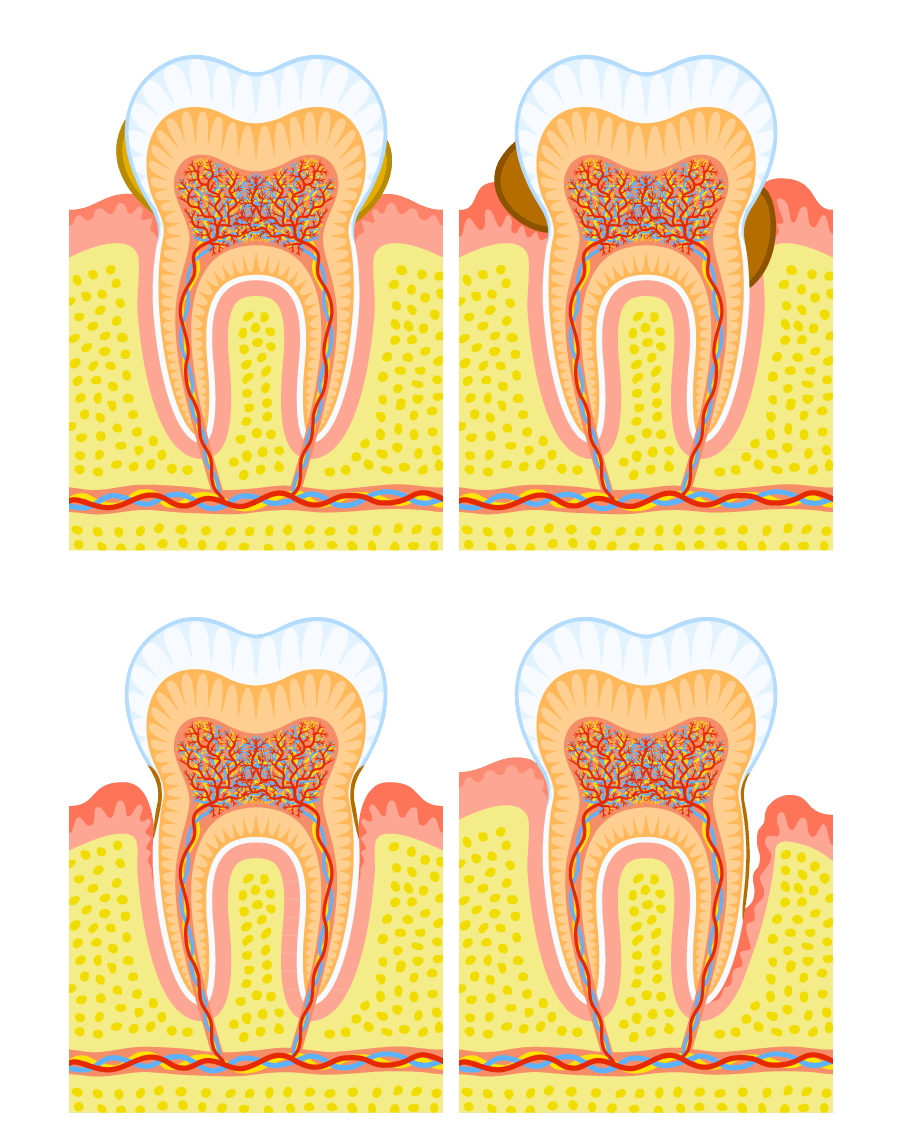Periodontal Disease
Periodontal Disease is an infection around the bone and gums affecting the teeth and gums. This condition is often over looked because early and moderate stage symptoms are rarely experienced. Advanced stages of periodontal disease attacks the gums causing damage to the connective tissues that hold teeth in place. There are three stages of periodontal disease, but left untreated the result is usually tooth loss.
Periodontal’s actual meaning is ‘around the tooth’ and that is exactly where the disease attacks. Advanced periodontal disease is a serious bacterial infection affecting the tissues of the mouth and gums. Symptoms may include red, inflamed or even bleeding gums that pull away from the teeth. This is usually accompanied by bad breath. Other signs to be aware of are changes in tooth positioning when you bite and teeth that feel loose. In some cases, pus will appear between the teeth and an abscess may develop at the gum line.
Stages
Gingivitis

Periodontitis
Once this occurs, the health of the mouth is at risk of permanent damage. Elevated bacteria level is a signal of advanced periodontitis, which is a major contributor to bone and tooth loss.
Video Education
Risk Factors
Tobacco use is a contributor to many health problems, and the mouth is no different. The probability of this disease rises directly with the amount of tobacco used. Along with an increase in probability and severity of the disease, the body’s ability to respond to treatment is also greatly decreased from tobacco use. This combination makes tobacco use one of the most important risk factors associated with the disease.
Increased risks can also be associated with diabetics whose disease is poorly controlled. Diabetic conditions are greatly affected by bacterial infections like periodontal disease. The result can be an increased severity in the infections that occur. When diabetic conditions are properly controlled, treatment methods have much higher success results.
There is also information pointing to the fact that heredity factors and genetics play a role in the development of periodontal disease. Studies of younger patients have shown a clear genetic connection to certain forms of the disease. While genetic conditions cannot be changed, patients can protect themselves by modifying poor oral health behaviors.
Prevention
It is as simple as brushing twice daily, flossing your teeth and having your teeth cleaned regularly at the dental office.

If you are concerned about the health of your teeth and gums, contact our office today to schedule your dental checkup and cleaning.

